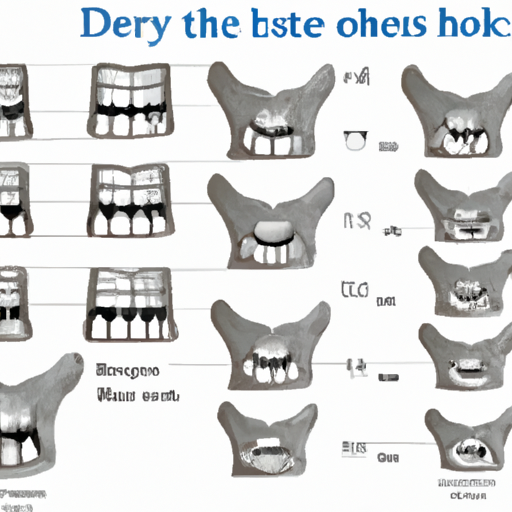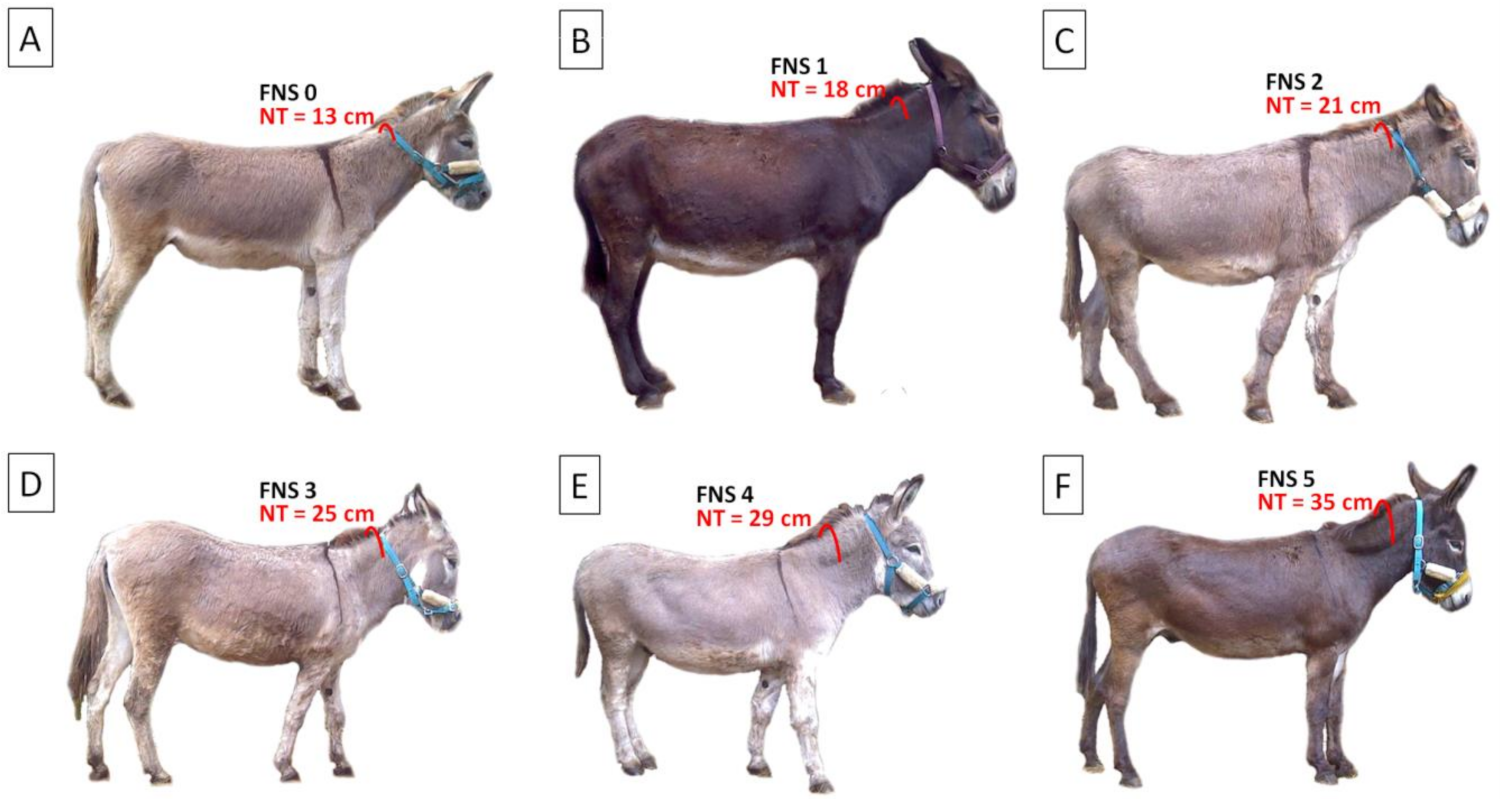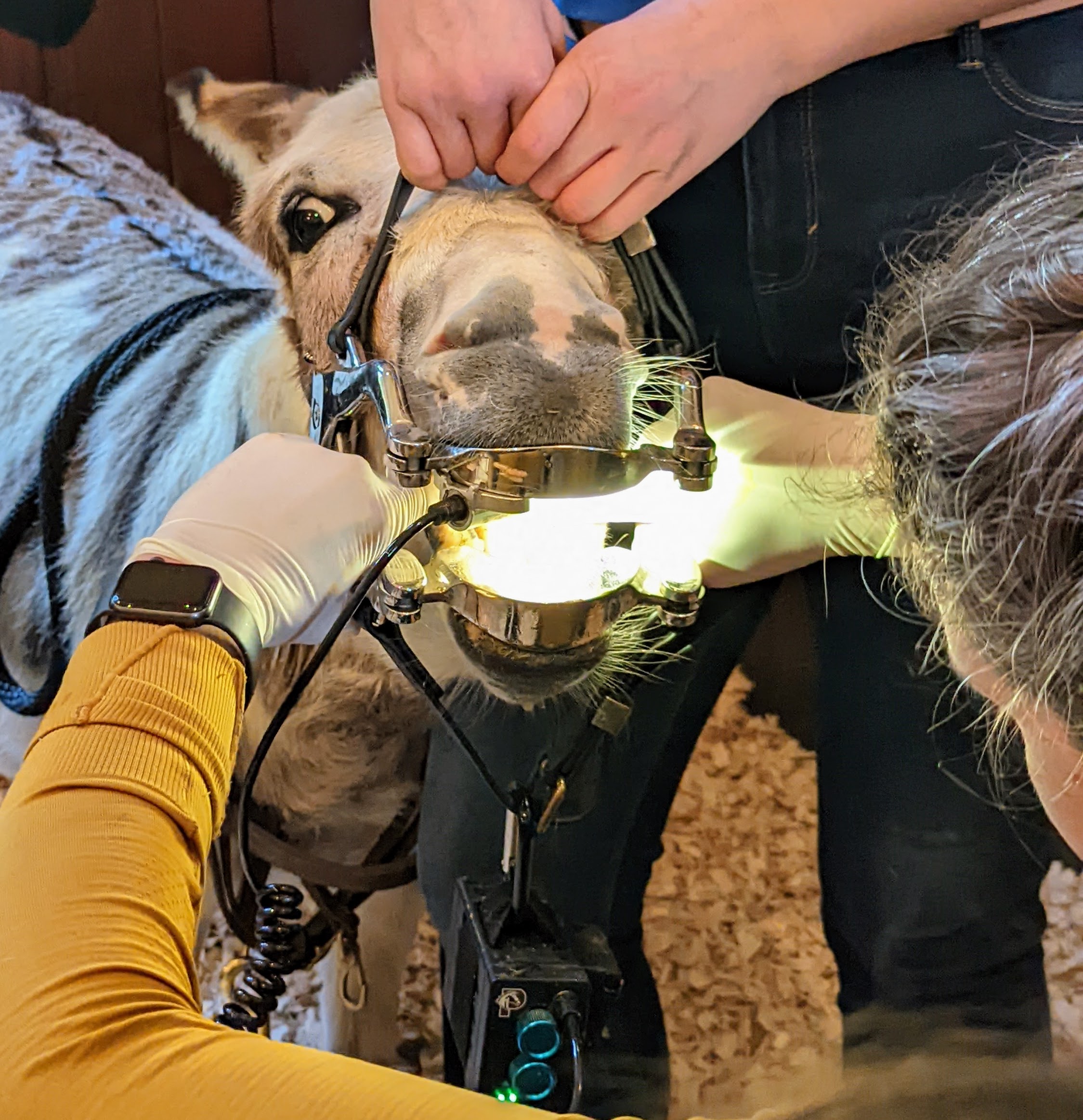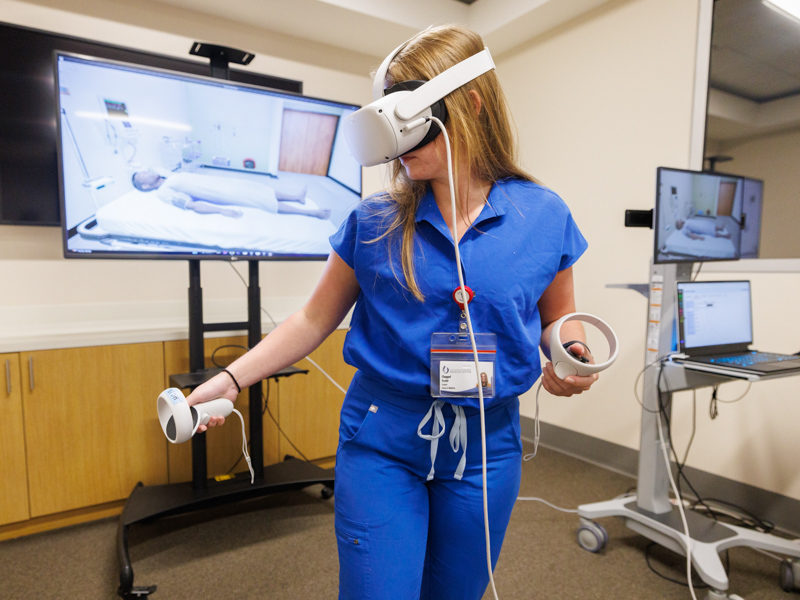What Are the Different Types of Donkey Teeth?
The different types of donkey teeth include incisors, canines, premolars, and molars. Incisors are used for cutting grass, canines are less prominent, premolars help grind food, and molars further aid in chewing.
How Many Teeth Do Donkeys Have?

Donkeys typically have 36 to 44 teeth, depending on their age and gender. Adult male donkeys usually have 40 teeth, while females may have fewer.
What Is the Purpose of Donkey Teeth?
The purpose of donkey teeth is to aid in grinding and chewing tough plant material, allowing donkeys to efficiently process their fibrous diet.
How Do Donkey Teeth Compare to Horse Teeth?
Donkey teeth are generally smaller and more compact than horse teeth. Donkeys have fewer teeth, typically 36 to 40, while horses have 40 to 44. Donkey molars are more adapted for grinding tough forage, whereas horse teeth are larger and designed for a wider variety of diets. Additionally, donkey incisors are more prominent than those of horses.
What Are Common Dental Issues in Donkeys?

Common dental issues in donkeys include dental overgrowth, sharp enamel points, and malocclusion. Donkeys may also experience periodontal disease and tooth loss. Regular dental check-ups are essential for maintaining their dental health.
How Can I Tell If My Donkey Has Dental Problems?
Look for signs like difficulty eating, excessive drooling, weight loss, bad breath, and foul-smelling discharge from the mouth. Check for uneven wear on teeth, overgrown teeth, or loose teeth. Regular dental check-ups by a veterinarian can help identify dental problems early.
When Should Donkeys Get Their Teeth Checked?
Donkeys should have their teeth checked at least once a year. Older donkeys or those showing signs of dental issues may need more frequent examinations.
What Is the Best Diet for Healthy Donkey Teeth?
The best diet for healthy donkey teeth includes high-fiber forage like hay or grass, limited concentrates, and occasional treats like carrots or apples. Regular dental check-ups are essential to address any issues. Avoid excessive sugary or starchy foods.
How Do I Care for My Donkey's Teeth?

To care for your donkey's teeth, regularly check for signs of dental issues like difficulty eating or bad breath. Schedule annual dental check-ups with a veterinarian experienced in equine dentistry. Provide a balanced diet with appropriate forage to help wear down teeth naturally. If you notice sharp points or hooks, have them floated by a professional. Keep their environment clean to prevent dental disease.
What Are the Signs of Tooth Decay in Donkeys?
Signs of tooth decay in donkeys include bad breath, difficulty chewing, weight loss, loose teeth, visible cavities or discoloration on teeth, and excessive drooling. Regular dental check-ups can help identify these issues early.
Can Donkeys Eat Hay with Bad Teeth?
Yes, donkeys with bad teeth can eat hay, but it may be difficult for them. It’s important to provide softer hay or chopped forage to help them eat more easily. Regular dental check-ups are essential to manage their dental health.
How Often Do Donkeys Need Dental Floating?
Donkeys typically need dental floating once a year. Regular check-ups can help address any dental issues early.
What Tools Are Used for Donkey Dental Care?

Tools used for donkey dental care include dental floats, speculums, hand-held dental instruments, and power tools for more extensive procedures. Regular check-ups with a veterinarian who specializes in equine dentistry are also essential.
Are Donkey Teeth Different by Breed?
Yes, donkey teeth can vary by breed. Different breeds may exhibit variations in tooth size, shape, and arrangement.
How Do Age and Teeth Change in Donkeys?
As donkeys age, their teeth undergo several changes. Young donkeys have smooth, white teeth, while older donkeys develop wear patterns and may show signs of tartar buildup. The incisors and molars can become rough, uneven, or even loose. Typically, donkeys' teeth continue to erupt throughout their lives, and older donkeys may experience dental issues, such as gum disease or tooth loss. Regular dental care is important to manage these changes effectively.
What Are the Consequences of Neglecting Donkey Dental Health?
Neglecting donkey dental health can lead to severe consequences, including pain, difficulty eating, weight loss, and malnutrition. It can also result in dental diseases, such as gingivitis and tooth decay, leading to infections and abscesses. Additionally, poor dental care may cause behavioral issues and increased risk of colic. Regular dental check-ups are essential to prevent these problems.
Can Donkeys Have Tooth Extrusions?
Yes, donkeys can have tooth extrusions, which occur when teeth grow longer than normal due to issues like dental disease or improper wear. Regular dental check-ups are essential for maintaining their oral health.
What Should I Do If My Donkey Loses a Tooth?
If your donkey loses a tooth, first check for bleeding or signs of pain. Ensure it can eat soft food and monitor its eating habits. Consult a veterinarian to assess the loss and check for any underlying dental issues. Regular dental check-ups are important for overall health.
How Do I Find a Good Equine Dentist for My Donkey?
To find a good equine dentist for your donkey, ask for recommendations from local veterinarians or equine professionals. Look for dentists with experience specifically in donkeys or equines. Check their credentials and certifications. Read reviews or testimonials from other donkey owners. Ensure they use gentle handling techniques and have good communication skills. Schedule a consultation to assess their approach with your donkey.
What Are the Most Common Donkey Dental Procedures?
The most common donkey dental procedures include floating (filing down sharp points), extraction of diseased teeth, checking for wolf teeth, and treating dental overgrowth. Regular dental check-ups are essential for maintaining donkey dental health.
